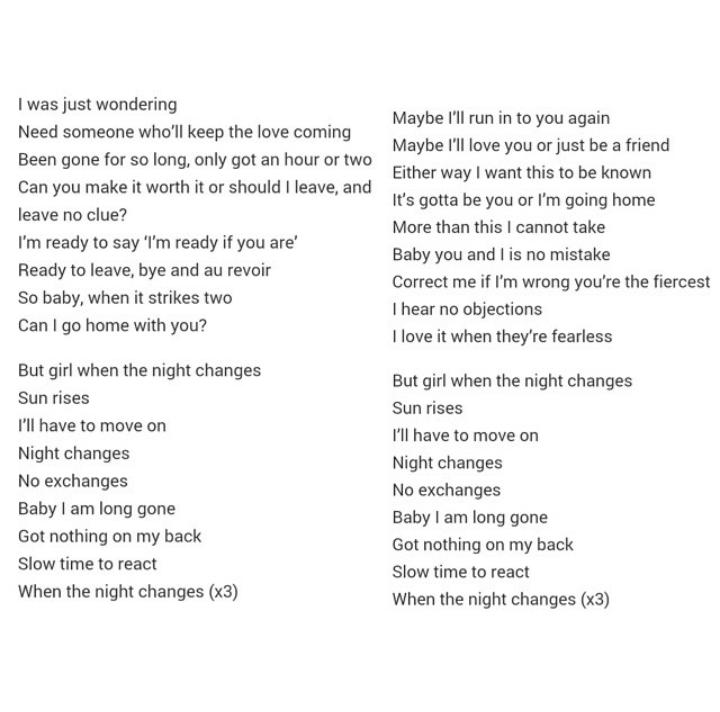

SONDHEIM: Here, for example, here are a couple of lines from "Mix" (ph), which was the name of a song that we wrote, which was our - the second attempt at an opening song. GROSS: So one of the things I love about your book is that, you know, you not only tell the stories about the songs, you reprint the lyrics for alternate songs, for songs that you wrote before the final song was written or chosen, and you do that with the "Jet Song." There were a couple of songs that you'd written lyrics for that weren't used. But virtually everything else, the way the characters talk, Arthur made up - highly romanticized and very simply flowery for the young lovers, and for the gangs, a kind of made-up slang. And that's a word that has stayed pretty much in the language, meaning approximately the same thing, although it changed a little bit. So, you know, one of the very few pieces of actual street argot we used was the word cool, which still meant the same thing back in 1957 that had meant to jazz musicians earlier. Arthur wrote the book, and he set - he made up a style, a kind of street talk that never existed because he knew that if he used actual street argot, it would date so quickly that by the time the show got on a year or two later, it would be old-fashioned. STEPHEN SONDHEIM: I was just imitating Arthur Lawrence's style. GROSS: I asked Stephen Sondheim how he went about writing lyrics for a show with street gangs, singing and dancing to show tunes. Then you are set with a capital J, which you'll never forget till they cart you away. When company's expected, you're well protected. When you're a Jet, if the spit hits the fan, you've got brothers around. UNIDENTIFIED ACTORS: (As characters, singing) When you're a Jet, you're a Jet all the way from your first cigarette to your last dying day. We'll start with a song from the show that launched his Broadway career, "West Side Story," the musical that Steven Spielberg has adapted into a film that opens this month. It was the first of two volumes of his lyrics.

The occasion for this one was the publication of his book "Finishing The Hat," which collected his lyrics from 1954 to '81 and told the stories behind them. He started his career writing the lyrics for "West Side Story" and "Gypsy" and went on to write music and lyrics for such shows as "A Funny Thing Happened On The Way To The Forum," "Company," "Follies," "A Little Night Music," "Sweeney Todd," "Merrily We Roll Along," "Sunday In The Park With George," "Into The Woods" and "Passion." The interview today was recorded in October 2010, just a few months after the interview we featured yesterday. Stephen Sondheim was such a brilliant and groundbreaking composer and lyricist that we couldn't confine our tribute to just one day.


 0 kommentar(er)
0 kommentar(er)
